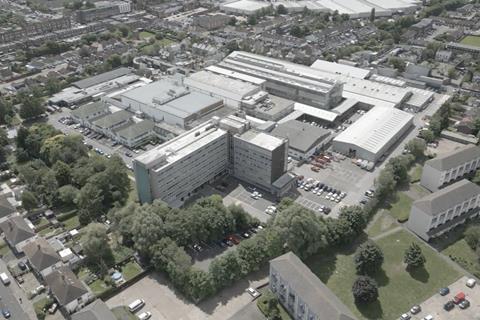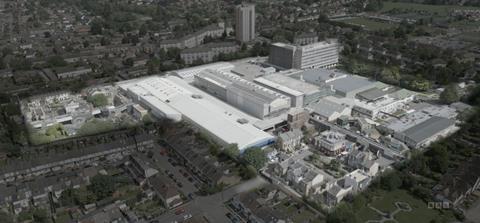AXA IM Alts recently announced it would be making its first investment in the UK’s TV and film studio market with the acquisition of the BBC Elstree Centre in North West London. IBC365 caught up with Stuart Carr-Jones, Head of Transactions for UK at AXA IM Alts, to find out more.
How and why was Elstree identified as an investment opportunity in the first place?
“As we started to explore the media sector in the UK, we focused on some of the larger, more established locations, of which Elstree is one, with anchor tenants like the BBC. The proximity to London, to talent and various skills, was critically important, so it had good infrastructure. Also, the “muscle memory” of the sector is quite interesting, where using consistent inputs into the creative and production process, or having familiarity knowing how a site works, really helps to deliver the high standard of productions that the UK is renowned for.

Read more AXA IM purchases BBC Elstree Centre
How much of the studio will be leased back to the BBC and what will be done with the rest?
“The BBC is going to retain about half via a long-term lease and the other half we will look to repurpose into new studios, ancillary workshops and post-production offices, but it is designed to be retained as studio usage. We still need to go through the planning process with the council so the scale and scope of that will be determined through that process.”
Can you elaborate further on your plans for the new best-in-class studio campus?
“It’s very early but we’ll be looking at an all-electric format, with modern methods of construction, whether that’s some form of modular or cross-laminated timber (CLT) construction, not just for the studios, but also for some of the ancillary uses to make it quite an interesting space for the occupiers.

“Our architects are looking at how we get the right type of physical space to allow more flexible solutions that accommodate evolving technologies, not just in terms of greenscreens but further VR use, and enhanced post-production facilities on site that enable a more integrated supply chain. The key is to have a flexible space that, as the sector goes through a huge change over the next decade or two, we can adapt with.
“Obviously we’ll also make as much use of photovoltaic systems as we can, but we expect that design review process to continue for a good few more months.”
What do you hope the impact will be on British film and TV production?
“We hope that it continues to foster innovation and creativity in the sector, so that demand continues to be sustainable and keep growing. We want to deliver modern studios, which have been largely lacking in the UK sector for some time. To deliver a product that meets the evolving demands of more institutional production companies and that’s fit for purpose.”
What makes UK studio investments so attractive at the moment?
“It’s that continued demand we see from global production houses for TV and film, and that is driven in turn by that skill set, for example, the language and cost. That demand is driven by a lot of US film houses that like the UK as a production location. So we feel that the fundamentals of the sector globally are really interesting, and the UK is a big piece of that.”
What are the benefits of leasing the set back to the BBC on a long-term basis?
“It’s a huge benefit to have an organization like the BBC on site. The organisation is a massive draw to Elstree, generally, as a location, with lots of people who have worked there at some stage over the years.

“It’s great we’ll be a long-term partner with them and we look forward to continuing to work with the BBC to deliver and operate the studios.”
Why did you purchase Bry-sur-Marne in France and what are your plans for the studio?
“It’s very similar in some respects to Elstree in the sense of its urban proximity to Paris. It’s easily accessible, has good existing studios, and with room to expand and deliver some new facilities.
“The growth we see in that French media space is coming off a more emerging trajectory, and there’s a lot of scope there that we think is very interesting. The layout and the way studios are run in Paris are slightly different, in terms of the operating model, with more of an integrated or communal use of ancillary areas, which is slightly different to the way that’s typically done over here. It’s been a useful learning experience to compare both models and assess the positives and negatives in each regard. We’re now almost 12 months into that deal with the planning work underway. Elsewhere in Europe we’re also looking at other potential opportunities where we might like to add to those two assets.”
AXA IM Alts is planning on submitting its planning application for Elstree later this summer.
























No comments yet